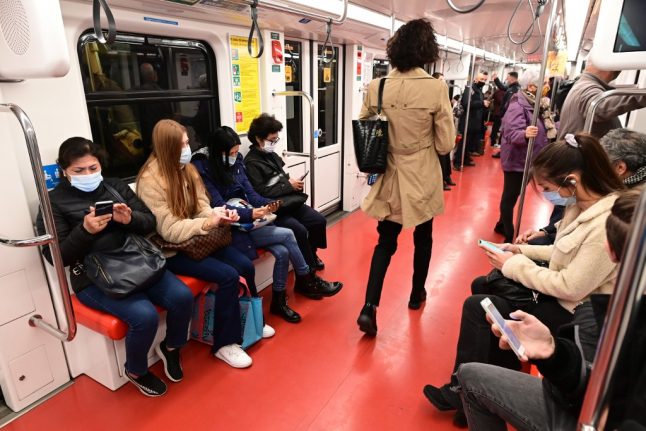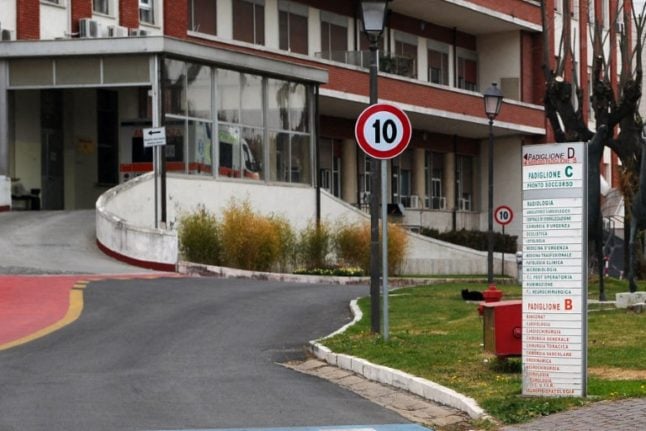“Certain metropolitan areas like Milan, Naples and probably Rome are already out of control in terms of containing the pandemic,” said infectious disease expert Walter Ricciardi, who advises Italy's health ministry on Covid-19.
“Their numbers are too high to be contained by the traditional method of tracing and testing. And as previous epidemics teach us, when you can't contain you have to mitigate, namely you have to block movement.”
Italy reported another record increase in coronavirus infections on Wednesday, registering 15,199 new cases in 24 hours.
Another 127 people died, up from 89 the previous day.
Two of the regions currently reporting the highest numbers of new cases, Lombardy and Campania, have imposed the strictest limits on movement since Italy ended its nationwide lockdown.
In Campania, residents are now restricted from leaving their own province unless it's essential, while in Lombardy from Thursday people must stay indoors nightly between 11pm and 5am.
READ ALSO: Curfews, closures and distance learning: How Italy's regions are tightening Covid-19 restrictions
The northern region on Wednesday reported its highest number of new cases in one day since the pandemic began, detecting more than 4,000 positives out of some 36,000 tests in the past 24 hours.
In Lombardy's biggest city, Milan, a field hospital in a conference centre has been reopened as local authorities brace for a surge in more serious cases.
As regions tighten the rules locally, some experts are calling for new national restrictions – something that the government has so far resisted since phasing out its long and costly lockdown in May.
Having acted swiftly at the beginning of the emergency, Italy “has followed the decision-making model of other countries, whose leaders had neither the courage, the capacity nor the timing to take the right decisions at the right moment,” said Ricciardi on Wednesday, in comments to a webinar quoted by Rai News.
He urged politicians “to be brave and understand that you can't rebuild the economic fabric unless you secure your people's safety”.
READ ALSO:
- IN MAPS: Where are coronavirus cases rising in Italy?
- Eight charts that show the state of the Covid-19 pandemic in Italy
- ANALYSIS: How and why the coronavirus numbers in Italy have risen so sharply
But Prime Minister Giuseppe Conte insisted that Italy could avoid another general lockdown.
“We can't use the same strategy to fight the second wave as we did in spring,” he told the senate on Wednesday. “Now we're in a different situation that we were in in March: back then we didn't have the means to diagnose, now we're readier thanks to the hard work and sacrifices of all.”
Schools would remain open, Conte said, albeit with partial distance learning for older pupils, and the government would avoid general, nationwide closures of businesses.
Yet the prime minister encouraged people to stay at home voluntarily: “We must all strive to limit infections, to limit unnecessary travel. If we make these sacrifices, we will avoid harder measures.”



 Please whitelist us to continue reading.
Please whitelist us to continue reading.
Member comments